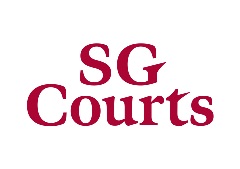Official website links end with .gov.sg
A Singapore Government Agency Website
How to identify
Secure websites use HTTPS
Not sure where to start?
Try our Guided Questionnaire (BETA)
Note: To search for hearing details for a specific case, visit the hearing list page.
Note: To search for hearing details for a specific case, visit the hearing list page.
Page not found
We cannot find the page you are looking for.
If you typed in a URL, please check that it was correct.
You can try going back to the homepage.
Please click on the following for matters relating to:
 |  |  |
Share this page:

Facebook

X

Email

Print




